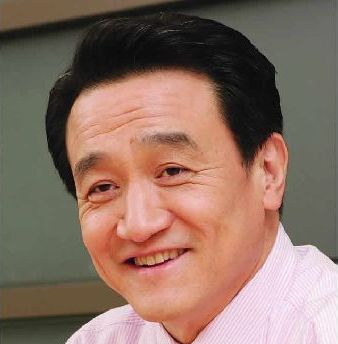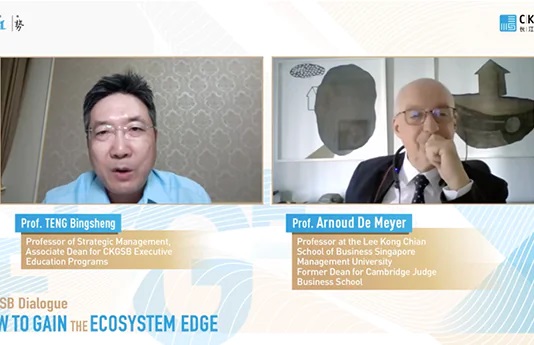Cho Dong-Sung is a Professor of Strategy at Cheung Kong Graduate School of Business (CKGSB), and the author of over 90 articles and 43 books, including Chaebol: Korean Business Giant (2007), From Adam Smith to Michael Porter: Evolution of Competitiveness Theory (2000), Tiger Technology: The Rise of the Semiconductor Industry in Asia (1999) and The General Trading Company (1986).
Q. Hi Professor Cho. How did you decide on “creativity” as a value to emphasize in your teachings?
A. Until five years ago, I was a very traditionally-oriented, staunch conservative person. If you’re not accustomed to doing this, then you think you can’t move out of what you’re used to doing. Instead of trying to create something new, you try to accommodate yourself with what you are surrounded by. I guess that’s the starting point of creativity, perhaps those who tend to be creative, are in many cases the sort who don’t easily mix with conventional people. And in particular, MBA students are probably the best examples of those who belong to conventional wisdom.
That’s why here and there, people cry for MBA programs to be remodeled for design, especially in the areas of ethics and values. Whenever there are global financial crises, fingers point to MBA programs. We live in a new world where MBA education is using a 20-, 40-year-old model.
Q. What’s an example of creativity being integrated with business management?
A. I’ve been working in the field of management design, and management by art, but this has nothing to do with conventional design. It’s not about how to design a product or how to decorate the interiors of department stores. What we’re doing is thinking about how we can design a new practice for HR departments to attract better talent, or how we can design the process by which customers can get a better sense of satisfaction.
If a problem is dealt with in a company, then the managers would use the kind of models that they learned from their MBA program. In management by art, we are using a completely different approach,we are not using SWOT analysis, we’re not using the Five Forces model, we’re not using 4 P’s, we’re not using business purchasing models. What we are using is design theory. Any business decision can be a design issue.
Q. As you’re also teaching at Seoul National University now, what do you think makes South Korea such a creative powerhouse?
A. Do you know the city in which there are the most number of operas being performed in a year? Seoul. Do you know which country has the most number of opera companies? It’s Korea, with more than 100 opera companies. And in Korea, there are more musicals being created and performed than in New York’s Broadway. Korea is also producing the largest number of classical singers. If you go to Italy, Koreans are the majority of students.
In most countries, classical performances with orchestras, ballet, opera–they all have to be subsidized by the government or big companies. In Korea, classical ballet and operas make a profit by selling tickets.
In the last 50 years, Koreans have become footloose, and perhaps that has changed how Korean people think of themselves. We have 4,000, 5,000 years of tradition that has been deeply embedded in our mindset, but because of the war we went through in the 1950s when the North Koreans invaded Korea, most Koreans had to leave their hometowns and move south. I am one of them.
They have the experience of changing their residence, which meant changing their culture, their ways of living. This experience has allowed Koreans to feel that creating something new is not that alien.
Q. How can other countries learn from South Korea’s creative path?
A. Korea has been in the global lead, in moving away from the “knowledge society”. In the past 15 years, all leading countries in the world, America and Europe, Japan, Korea and China as well, have been striving towards becoming “knowledge societies”. Knowledge has become a virtue, knowledge is what every company has been after. With this, those successful will go to business schools, medical schools and so on.
If we have to break the period into distinctive periods, in Korea the period of knowledge society is over. We have moved to becoming a society of creativity and culture, of art.
Q. Who should be driving creativity, the private sector, the government, academia?
A. There should not only be one single step, you should have individuals, companies, private society moving together. To expedite the process, business schools can play a very important role. Nowadays, when business professors talk, people listen. I think it’s better that people like myself– who are very traditional professors–talk. But if an art professor argues what I’m saying to you, then people will say, “That’s their profession.” So perhaps that’s why I am arguing the importance of a field for which I haven’t been conceived. More cross-disciplinary thinking is needed.

















